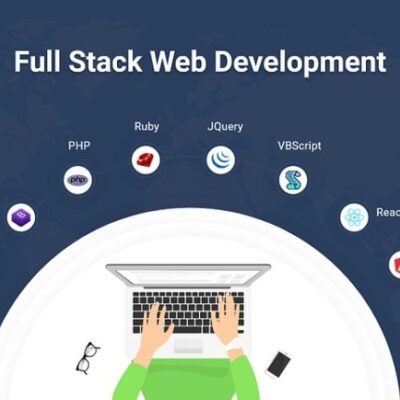Web development has evolved significantly over the years, and PHP frameworks have played a crucial role in simplifying and accelerating the development process. PHP frameworks provide a structured and organized approach to building web applications, allowing developers to work efficiently and produce high-quality code.
10 best PHP frameworks for web development in 2023
In this article, we will explore the 10 best PHP frameworks for web development in 2023. These frameworks have gained popularity due to their robust features, extensive community support, and ability to streamline the development workflow. Whether you are a beginner or an experienced developer, these frameworks will empower you to create exceptional web applications with ease.
Laravel: The PHP Framework for Web Artisans
Laravel is widely regarded as one of the best PHP frameworks available today. It offers an elegant syntax, a powerful ORM (Object-Relational Mapping) system, and a rich ecosystem of libraries and extensions. With Laravel, you can build complex web applications quickly and efficiently.
The framework provides a beautiful and intuitive syntax that enables developers to write expressive and clean code. Laravel also includes features like routing, caching, and session management out of the box, saving developers valuable time and effort. Its active community ensures regular updates, bug fixes, and a wealth of learning resources.
Symfony: High Performance PHP Framework
Symfony is a high-performance PHP framework that emphasizes modularity and reusability. It follows the MVC (Model-View-Controller) architectural pattern and provides a set of reusable PHP components that can be used in any PHP application. Symfony is known for its flexibility and extensibility, making it an excellent choice for large-scale projects.
The framework’s components are decoupled, meaning you can use them independently or together, depending on your project’s requirements. Symfony’s robust documentation and community support make it easy for developers to get started and find solutions to any challenges they may face during development.
CodeIgniter: Lightweight and Powerful
CodeIgniter is a lightweight PHP framework designed for developers who prefer a minimalistic approach. Despite its small footprint, CodeIgniter packs a punch with its exceptional performance and simplicity. It is known for its easy learning curve, making it an ideal choice for beginners.
The framework offers a straightforward and intuitive interface, allowing developers to create web applications rapidly. CodeIgniter includes features like database abstraction, form validation, and security functionalities, ensuring that developers can focus on building their applications rather than reinventing the wheel.
Zend Framework: Enterprise-Grade PHP Development
Zend Framework, now known as Laminas, is a powerful and versatile PHP framework designed for enterprise-grade PHP development. It provides a collection of professional PHP packages that can be used independently or combined to build robust applications. Zend Framework offers a modular structure, allowing developers to use only the components they need.
The framework follows industry best practices and conventions, making it suitable for large-scale projects with complex requirements. With its extensive documentation and strong community support, Zend Framework empowers developers to create scalable and maintainable web applications.
Yii: Fast and Secure PHP Framework
Yii is a high-performance PHP framework known for its speed and security features. It embraces the DRY (Don’t Repeat Yourself) principle, promoting code reuse and efficiency. Yii is particularly suitable for developing large-scale applications, thanks to its powerful caching and performance optimization capabilities.
The framework offers a solid foundation for building web applications and provides features like authentication, RBAC (Role-Based Access Control), and RESTful API development out of the box. Yii’s active community and well-documented codebase make it an excellent choice for developers looking to build fast and secure web applications.
Phalcon: High-Performance Full-Stack Framework
Phalcon is a full-stack PHP framework that focuses on performance and efficiency. Unlike traditional PHP frameworks, Phalcon is implemented as a C extension, resulting in blazing-fast execution speeds. It offers a rich set of features, including ORM, caching, routing, and validation.
The framework’s architecture is designed to minimize overhead and maximize performance, making it an ideal choice for applications that require high-speed processing. Phalcon’s comprehensive documentation and active community ensure that developers can leverage its features effectively.
CakePHP: The Rapid Development Framework
CakePHP is a powerful PHP framework that emphasizes rapid development and simplicity. It follows the convention over the configuration principle, allowing developers to focus on building their applications rather than spending time on tedious configuration tasks. CakePHP’s scaffolding feature enables developers to quickly generate code and prototypes.
The framework provides a robust set of features, including ORM, validation, caching, and security components. CakePHP’s well-structured codebase and active community make it an excellent choice for developers who value speed and productivity.
Slim: Micro Framework for PHP
Slim is a lightweight micro-framework designed for building simple yet powerful web applications and APIs. It offers a minimalist and intuitive interface, allowing developers to create RESTful applications with ease. Slim’s small footprint and efficient routing system make it an ideal choice for building microservices and lightweight applications.
The framework provides essential features like routing, middleware support, and dependency injection, enabling developers to create scalable and maintainable applications. Slim’s simplicity and flexibility make it an excellent choice for developers who prefer a lean and focused framework.
FuelPHP: Full-Stack PHP Framework
FuelPHP is a full-stack PHP framework that combines elegance and simplicity with modern web development practices. It follows the HMVC (Hierarchical Model-View-Controller) architectural pattern and provides a set of robust features for building scalable applications. FuelPHP focuses on performance, security, and modularity.
The framework offers features like ORM, caching, and RESTful routing out of the box, empowering developers to create feature-rich applications with ease. FuelPHP’s comprehensive documentation and helpful community ensure that developers can quickly get up to speed and build high-quality web applications.
Conclusion
Choosing the right PHP framework is crucial for web development projects in 2023. Each framework mentioned in this article offers unique features and benefits, catering to different project requirements and developer preferences. Whether you prioritize speed, simplicity, scalability, or performance, there is a PHP framework that will suit your needs.
By leveraging the power of these top 10 PHP frameworks, developers can streamline their workflow, write efficient code, and create exceptional web applications. Stay up-to-date with the latest advancements and community trends to make informed decisions when selecting a PHP framework for your next project.
Remember, the choice of a PHP framework ultimately depends on the specific requirements of your project and your personal preferences as a developer. So, explore the options, experiment, and find the framework that empowers you to build amazing web applications in 2023 and beyond.
Frequently Asked Questions (FAQs)
What are PHP frameworks?
PHP frameworks are libraries and toolsets that provide a structured and organized approach to building web applications with PHP. They offer a set of reusable components and conventions that simplify the development process and promote best practices.
Why should I use PHP frameworks for web development?
PHP frameworks offer several benefits, such as code reusability, rapid development, security features, and community support. They help developers write clean, maintainable code and streamline the development workflow, resulting in faster and more efficient web application development.
Are PHP frameworks suitable for beginners?
Yes, many PHP frameworks, such as CodeIgniter and CakePHP, are beginner-friendly. They have a shallow learning curve and provide extensive documentation and tutorials to help newcomers get started. Using a PHP framework can enhance a beginner’s learning experience and accelerate their journey to becoming proficient developers.
Which PHP framework is the best for large-scale projects?
Symfony and Zend Framework (Laminas) are excellent choices for large-scale projects due to their modularity, scalability, and extensive feature sets. These frameworks provide the flexibility and tools necessary to handle complex requirements and build enterprise-grade web applications.
Can I use multiple PHP frameworks in a single project?
While it is technically possible to use multiple PHP frameworks in a single project, it is generally not recommended. Mixing frameworks can lead to code conflicts, increased complexity, and potential performance issues. It is best to choose a single framework that aligns with your project’s requirements and stick with it.
How can I choose the right PHP framework for my project?
When selecting a PHP framework, consider factors such as project requirements, learning curve, community support, documentation, and scalability. Evaluate the features and strengths of each framework and choose the one that best aligns with your project’s needs and your development preferences.




